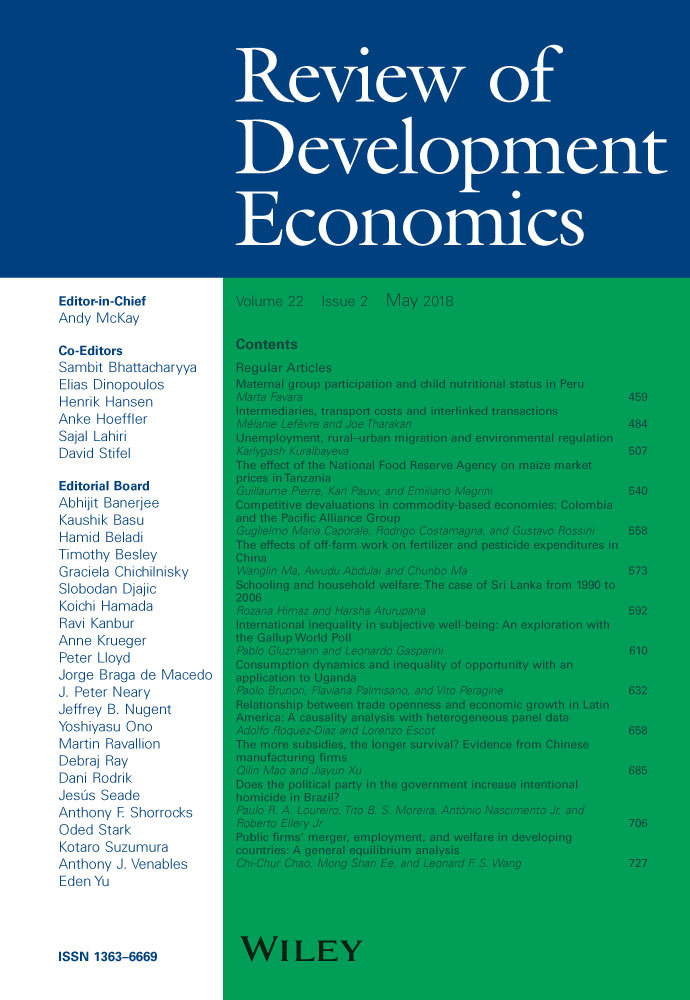Public firms' merger, employment, and welfare in developing countries: A general equilibrium analysis
Abstract
This paper examines the effect of a merger of state-owned firms on wage gap, employment, and social welfare in a general equilibrium setting. For a developing economy with state-owned firms in the urban sector, a merger via a reduction in the number of the urban state-owned firms can reduce the cost of capital. It then lowers the skilled wage rate through the factor-substitution effect, while it raises the unskilled wage by the inflow of capital to the rural sector and hence lowers urban unemployment. In addition, the reduction in the number of the urban state-owned firms can yield a scale effect to the firms. The beneficial effects on higher urban output and less urban unemployment can improve social welfare of the developing economy.




